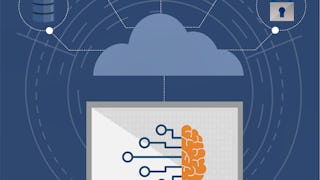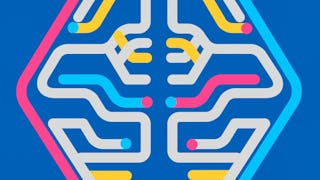The course "Reliability, Cloud Computing and Machine Learning" explores advanced distributed database concepts, focusing on transaction management, reliability protocols, and data warehousing, while also diving deeper into cloud computing and machine learning. You will develop a solid understanding of transaction principles, concurrency control methods, and how to ensure database consistency during failures using ACID properties and protocols like ARIES. The course uniquely integrates Hadoop, MapReduce, and Accumulo, offering hands-on experience with large-scale data processing and machine learning applications such as collaborative filtering, clustering, and classification.


Reliability, Cloud Computing and Machine Learning
本课程是 Large-Scale Database Systems 专项课程 的一部分

位教师:David Silberberg
包含在  中
中
您将学到什么
Learn transaction management principles, including ACID properties, concurrency control, and deadlock management techniques for distributed systems.
Explore reliability protocols, recovery algorithms, and commit protocols like ARIES, ensuring data consistency and durability.
Understand cloud computing with Hadoop, utilizing MapReduce for large-scale data processing, and apply machine learning techniques like clustering.
您将获得的技能
要了解的详细信息

添加到您的领英档案
8 项作业
了解顶级公司的员工如何掌握热门技能

积累特定领域的专业知识
- 向行业专家学习新概念
- 获得对主题或工具的基础理解
- 通过实践项目培养工作相关技能
- 获得可共享的职业证书

该课程共有4个模块
This course examines advanced distributed database topics, focusing on transaction management, reliability protocols, and data warehousing. This course also continues developing the MapReduce and HDFS concepts introduced in the last course and applying them to large-scale analytics and machine learning applications within distributed systems. Learners will explore the essential components for maintaining database reliability. In addition, it will dive deeper into cloud-based data processing with Hadoop, and develop foundational skills in analytics as well as machine learning applications using collaborative filtering, clustering, and classification techniques.
涵盖的内容
2篇阅读材料
This module explores transaction management in distributed database systems, focusing on concurrency control methods. You will learn to identify ACID properties to maintain database consistency, develop transaction plans with operations and partial orderings, and implement various concurrency control and deadlock management algorithms, including two-phase locking and time-based techniques.
涵盖的内容
11个视频5篇阅读材料3个作业
This module explores reliability protocols in distributed databases, focusing on maintaining consistency and durability during system failures. Key recovery and reliability protocols, including ARIES, two-phase, and three-phase commit, are covered. In addition, students will gain foundational knowledge of data warehousing principles, along with an introduction to Accumulo architecture. This includes basic Accumulo functionalities and cell-level security mechanisms essential for large-scale distributed data management.
涵盖的内容
6个视频7篇阅读材料3个作业
This module introduces core cloud computing principles with a focus on the Hadoop ecosystem and its utility for large-scale data processing. Emphasizing the MapReduce framework, learners will explore pseudocode development and architecture. The module also integrates foundational machine learning concepts, specifically clustering, classification, and collaborative filtering algorithms using Mahout and Accumulo. These techniques equip learners to perform scalable data analysis and build recommendation systems within Hadoop, suitable for managing and analyzing large datasets.
涵盖的内容
1个视频5篇阅读材料2个作业
获得职业证书
将此证书添加到您的 LinkedIn 个人资料、简历或履历中。在社交媒体和绩效考核中分享。
位教师

从 Data Management 浏览更多内容
 状态:免费试用
状态:免费试用Duke University
 状态:免费试用
状态:免费试用Johns Hopkins University
 状态:免费试用
状态:免费试用Google Cloud
 状态:免费试用
状态:免费试用University of Illinois Urbana-Champaign
人们为什么选择 Coursera 来帮助自己实现职业发展




常见问题
To access the course materials, assignments and to earn a Certificate, you will need to purchase the Certificate experience when you enroll in a course. You can try a Free Trial instead, or apply for Financial Aid. The course may offer 'Full Course, No Certificate' instead. This option lets you see all course materials, submit required assessments, and get a final grade. This also means that you will not be able to purchase a Certificate experience.
When you enroll in the course, you get access to all of the courses in the Specialization, and you earn a certificate when you complete the work. Your electronic Certificate will be added to your Accomplishments page - from there, you can print your Certificate or add it to your LinkedIn profile.
Yes. In select learning programs, you can apply for financial aid or a scholarship if you can’t afford the enrollment fee. If fin aid or scholarship is available for your learning program selection, you’ll find a link to apply on the description page.
更多问题
提供助学金,



